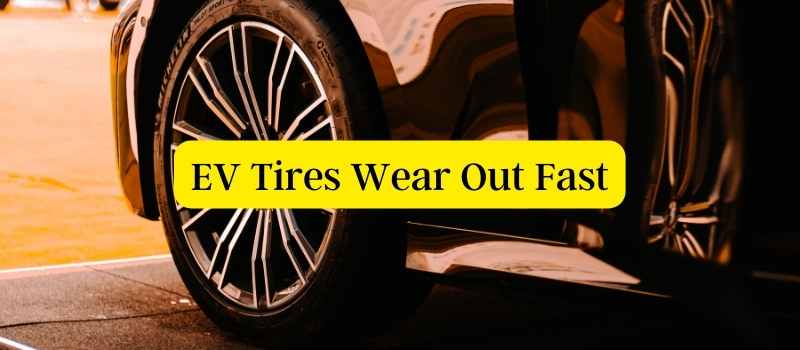
EV vehicles blow through tires much faster than fuel powered vehicles.
Palm Coast Local
Opinion
In recent discussions involving Palm Coast City Council members and residents in Flagler County, there's been debate over the need for additional EV charging stations. The question arises: are electric vehicles truly the future of transportation? However, it's worth noting that despite their merits, EVs face emerging challenges that demand attention, particularly concerning their environmental repercussions, which were previously underestimated.
A significant issue gaining prominence is the accelerated wear and tear of tires in EVs. This issue holds implications not only for the vehicles themselves but also for the broader environment. Unlike conventional internal combustion engine vehicles, EVs possess distinctive characteristics that contribute to tire degradation. Their electric drivetrains, powered by batteries, result in increased vehicle weight. Furthermore, the substantial torque generated by EV motors leads to swift acceleration, putting additional stress on tires.
This propensity of EVs to experience tire wear at an accelerated rate has garnered attention across the automotive industry, regulatory bodies, and vehicle owners. The impact of this issue is not to be underestimated, especially considering the growing concerns surrounding the ecological consequences of tire disposal and pollutants released by tire wear and brake usage.
As a response to these concerns, major tire manufacturers are actively investing in the development of environmentally sustainable tire options. This shift aligns with the wider trend of creating eco-friendly products in various sectors, recognizing the global challenges posed by tire waste and the associated pollutants.
Moreover, the tire industry's efforts to address the problem are well-aligned with the push for greener transportation solutions. The ongoing transition from fossil fuel-powered vehicles to electric alternatives has led to the development of specialized tires designed to withstand the unique demands of EVs. These tires are engineered to endure the stress caused by the vehicles' weight and rapid acceleration, while also contributing to extending the overall driving range of EVs.
However, concerns about EVs extend beyond tire wear. The disposal of EV batteries and the environmental impact of tire production must be acknowledged. The process of producing tires demands significant amounts of crude oil, a known contributor to global warming. In addition, the particles released by tire wear and brakes are recognized as a substantial source of pollution, potentially surpassing exhaust emissions in their environmental impact.
To address these multifaceted issues, tire manufacturers are working diligently to develop innovative solutions that align with the principles of sustainability and environmental stewardship. The goal is to produce tires that not only meet the performance demands of EVs but also minimize their negative ecological consequences.
Reference:
Kelly Blue Book: Helpful guide to replacing EV Tires Here
Consumer Reports Websites: "Do Electric Vehicles Need Special Tires"
While EV companies race to solve these issue private companies and investors are charged up about the possibility of hydrogen fuel-cell cars.
While electric vehicles offer undeniable benefits, it's crucial to recognize the evolving challenges associated with their usage. The impact of accelerated tire wear on EVs underscores the need for ongoing research, innovation, and consumer awareness. As the automotive industry and society at large transition towards more sustainable transportation options, addressing these challenges will play a pivotal role in shaping the future of electric mobility.
Do you own an EV? What are your thoughts? Tell us your experience or thoughts in the comments. Do you think Flagler County and Palm Coast need more electric care charging stations?
{ampz:share-now}






